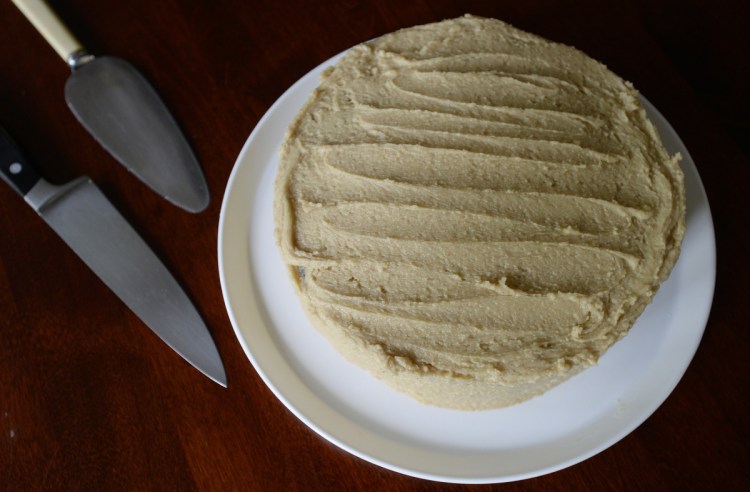Maine craft beer is everywhere.
On a recent visit to Chicago, I saw Allagash Brewing Company‘s Allagash White on the menu at a trendy beer and pizza joint in Logan Square and then again in a cooler in a downtown Walgreens. British beer drinkers at Leeds International Beer Festival in Yorkshire have for the past four days been sampling 78 Maine beers poured out of the Maine Beer Box. This custom-built, 40-foot refrigerated shipping container was commissioned by the Maine Brewers’ Guild and made its debut last summer in Reykjavik, Iceland. The traveling box is kitted out with a self-contained draft system, can accommodate 400 kegs, and can be shipped across the Atlantic to keep boosting Maine’s standing in the beer world.
Speaking to me from inside security at Logan Airport in Boston on his way to Leeds to pour Bigelow Brown Ale from this very large kegerator, Bigelow Brewing Company co-owner Jeff Powers credits the cooperative nature of the Maine beer industry as a key to its continued success. “If one of us needs something – advice, parts, grain – the rest rally to help out,” Powers said. And if a customer stops to sip his beer in Skowhegan, Powers asks where they are headed next and recommends other local breweries along the way. “They do the same all over the state.”
When Moderation Brewing Company co-owners Mattie Daughtry and Philip Welsh registered their Brunswick operation with the Department of Agriculture late last year, the company officially logged in as Maine’s 100th brewery. When I first wrote about local breweries and sustainability only two years ago, the number of Maine breweries was just half that, but most were already getting pretty crafty about using fewer resources and more local ingredients. They were supporting local farmers to increase grain and hops production, encouraging malting operations like Blue Ox Malt House in Lisbon Falls and The Maine Malt House in Mapleton to expand capacity, and figuring out how best to conserve water and reduce waste.

Maine Beer Velvet Cake.
Because the groundwork had been laid, Daughtry and Welsh were able to set clear sustainability objectives before they even opened their doors last March. Their goal is to produce beers made from 100 percent local ingredients within two years. Some of Moderation’s brews stand pretty close to that mark already, but all comprise at least 80 percent local grains, base malt and flavor agents like blueberries, elderberries and lemon balm. While hops grow well in Maine, the harvest season is short, and they are highly perishable. “So we have to be patient while the local infrastructure for processing hops gets built out to support the demand,” Daughtry said. Moderation, like most Maine breweries, sources the hops it can’t get locally from Washington State.
Because Moderation purchased a new system that repurposes water used to cool one batch of beer as the base liquid for the next batch and because of Welsh’s skills as chief tank scrubber, floor washer and plant waterer, the company already operates below its target water limit. “Hardly any water pulled from the ground to make beer goes back down the drain as waste,” Welsh said.
Nor does any spent grain go to the landfill. Instead, some goes into the compost pile at Crystal Spring Farm. Some gets traded as chicken feed in exchange for local eggs. Some goes to local businesses that are trying it out it in baked goods, pizza dough and dog biscuits.
Daughtry, who also serves in the Maine House of Representatives alongside Rising Tide Brewing Company owner Heather Sanborn, understands the intricacies of the Maine regulation that does not permit food production in the same physical space as beer production. It’s a limitation Daughtry sees as opportunity for local businesses looking to produce packaged foods she can, in turn, sell to her patrons who want to eat something while they sip a beer. “We serve as a kind of local foods hub for producers who need a test market,” Daughtry said.
Only some of those items are made with beer, like brownies that included Moderation’s Box Shop Girls Breakfast Stout. The stout is named after the Dennison Manufacturing Company’s nearly all-female workforce, which manufactured cardboard boxes from 1844 to the 1890s, a stone’s throw from the brewery’s Maine Street location. But Daughtry, an accomplished cook even before she started developing recipes for batches of beer, encourages customers who find themselves with any leftover beer that’s gone flat to bake with it. After all, why waste all that local flavor?
ABOUT THE WRITER
CHRISTINE BURNS RUDALEVIGE is a food writer, recipe developer and tester and cooking teacher in Brunswick, and the author of “Green Plate Special,” a cookbook from Islandport based on these columns. She can be contacted at cburns1227@gmail.com.
Send questions/comments to the editors.



Success. Please wait for the page to reload. If the page does not reload within 5 seconds, please refresh the page.
Enter your email and password to access comments.
Hi, to comment on stories you must . This profile is in addition to your subscription and website login.
Already have a commenting profile? .
Invalid username/password.
Please check your email to confirm and complete your registration.
Only subscribers are eligible to post comments. Please subscribe or login first for digital access. Here’s why.
Use the form below to reset your password. When you've submitted your account email, we will send an email with a reset code.